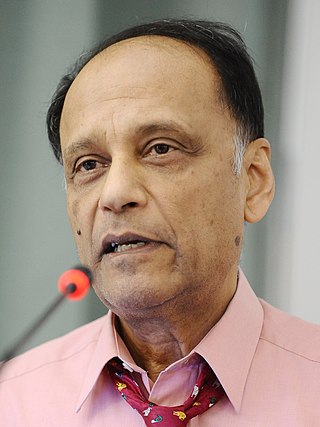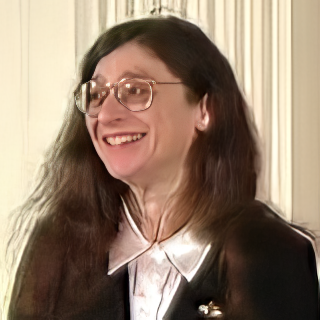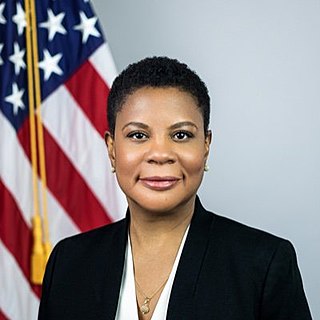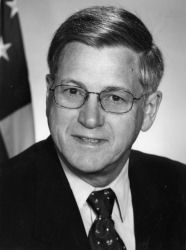
Washington University in St. Louis is a private research university with its main campus in St. Louis County, and Clayton, Missouri. Founded in 1853, the university is named after George Washington.

Joan E. Strassmann is a North American evolutionary biologist and the Charles Rebstock Professor of Biology at the Washington University in St. Louis. She is known for her work on social evolution and particularly how cooperation prospers in the face of evolutionary conflicts.

Sir Partha Sarathi Dasgupta is an Indian-British economist who is Frank Ramsey Professor Emeritus of Economics at the University of Cambridge, United Kingdom, and a fellow of St John's College, Cambridge.
Thomas Eisner was a German-American entomologist and ecologist, known as the "father of chemical ecology." He was a Jacob Gould Schurman Professor of Chemical Ecology at Cornell University, and Director of the Cornell Institute for Research in Chemical Ecology (CIRCE). He was a world authority on animal behavior, ecology, and evolution, and, together with his Cornell colleague Jerrold Meinwald, was one of the pioneers of chemical ecology, the discipline dealing with the chemical interactions of organisms. He was author or co-author of some 400 scientific articles and seven books.

William Esco Moerner is an American physical chemist and chemical physicist with current work in the biophysics and imaging of single molecules. He is credited with achieving the first optical detection and spectroscopy of a single molecule in condensed phases, along with his postdoc, Lothar Kador. Optical study of single molecules has subsequently become a widely used single-molecule experiment in chemistry, physics and biology. In 2014, he was awarded the Nobel Prize in Chemistry.

Barbara Anna Schaal American scientist, evolutionary biologist, is a professor at Washington University in St. Louis and served as vice president of the National Academy of Sciences from 2005 to 2013. She is the first woman to be elected vice president of the academy. From 2009 to 2017, Schaal served on the President's Council of Advisors on Science and Technology (PCAST).
Gary King is an American political scientist and quantitative methodologist. He is the Albert J. Weatherhead III University Professor and Director for the Institute for Quantitative Social Science at Harvard University. King and his research group develop and apply empirical methods in many areas of social science research, focusing on innovations that span the range from statistical theory to practical application.

John E. Heuser is an American Professor of Biophysics in the department of Cell Biology and Physiology at the Washington University School of Medicine as well as a Professor at the Institute for Integrated Cell-Material Sciences (iCeMS) at Kyoto University.
Philip S. Khoury is Ford International Professor of History and Vice Provost at MIT. He is also Chairman of the Board of Trustees of the American University of Beirut.
F. Stuart Chapin III is a professor of Ecology at the Department of Biology and Wildlife of the Institute of Arctic Biology, University of Alaska. He was President of the Ecological Society of America (ESA) from August 2010 until 2011.

May Roberta Berenbaum is an American entomologist whose research focuses on the chemical interactions between herbivorous insects and their host plants, and the implications of these interactions on the organization of natural communities and the evolution of species. She is particularly interested in nectar, plant phytochemicals, honey and bees, and her research has important implications for beekeeping.

Alondra Nelson is an American academic, policy advisor, non-profit administrator, and writer. She is the Harold F. Linder chair and professor in the School of Social Science at the Institute for Advanced Study, an independent research center in Princeton, New Jersey. From 2021 to 2023, Nelson was deputy assistant to President Joe Biden and principal deputy director for science and society of the White House Office of Science and Technology Policy (OSTP), where she performed the duties of the director from February to October 2022. She was the first African American and first woman of color to lead OSTP. Prior to her role in the Biden Administration, she served for four years as president and CEO of the Social Science Research Council, an independent, nonpartisan international nonprofit organization. Nelson was previously professor of sociology at Columbia University, where she served as the inaugural Dean of Social Science, as well as director of the Institute for Research on Women and Gender. She began her academic career on the faculty of Yale University.

Kenneth Prewitt an American academic who is the Carnegie Professor of Social Affairs at Columbia University's School of International and Public Affairs, where he is also director of the Scholarly Knowledge Project. He was Director of the United States Census Bureau from 1998 to 2001.
Jonathan B. Losos is an American evolutionary biologist and Herpetologist.
Robert A. Pollak is an economist. Pollak has made contributions to the specification and estimation of consumer demand systems, social choice theory, the theory of the cost of living index, and since the early 1980s, to the economics of the family and to demography. He is currently the Hernreich Distinguished Professor of Economics at Washington University in St. Louis, holding joint appointments in the Faculty of Arts & Sciences and in the Olin Business School.

David Hillel Gutmann is an American neurologist-neuroscientist. He teaches at Washington University in St. Louis, where he is the Donald O. Schnuck Family Professor, and Director of the Washington University Neurofibromatosis Center at He is an international expert in Neurofibromatosis, pioneering the use of preclinical models to understand brain tumors and neurodevelopmental delays in children with NF1.
Joy M. Bergelson is an American evolutionary biologist. She is currently the Dorothy Schiff Professor of Genomics at New York University. Bergelson was previously and James D. Watson Distinguished Service Professor of Ecology and Evolution at the University of Chicago, where she chaired the department for ecology and evolution. Her research focuses on the evolution and ecology of plants.
Elizabeth Haswell is an American biologist who is a professor and Howard Hughes Medical Institute-Simons Faculty Scholar at the Washington University in St. Louis. She was elected Fellow of the American Association for the Advancement of Science in 2021.









